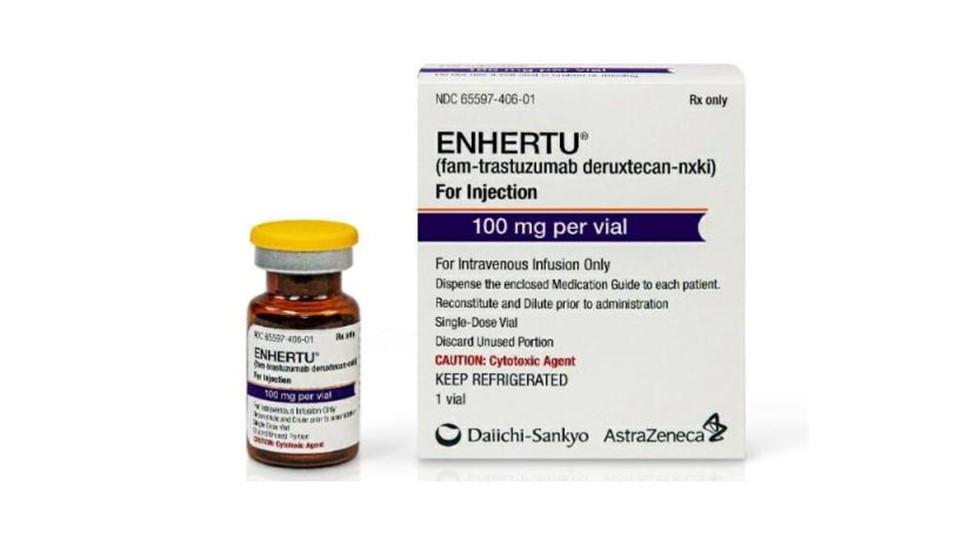Enhertu gets FDA nod for tumour-agnostic HER2 cancers

The FDA has approved the use of AstraZeneca and Daiichi Sankyo’s antibody-drug conjugate Enhertu for all HER2-positive solid tumours, in a first for both HER2 inhibitors and ADCs.
Enhertu (trastuzumab deruxtecan) can be used to treat adult patients with unresectable or metastatic HER2-positive (IHC 3+) solid tumours who have received prior systemic treatment and have no satisfactory alternative treatment options.
It is the fifth FDA approval for Enhertu, which is already cleared for HER2-positive breast, gastric, and lung cancers, as well as HER2-low breast cancer.
While those three account for most HER2-positive solid tumours, the new indication means Enhertu could now also be used in other cancers associated with HER2 mutations, including some bladder, pancreatic, colorectal, and ovarian cancers.
Individually, the additional cancers represent relatively small patient populations, but collectively could represent a sizeable market opportunity for Enhertu.
The new indication drew on subgroup data from three clinical trials, namely DESTINY-PanTumor02, DESTINY-Lung01, and DESTINY-CRC02, and has been granted after a priority review by the FDA.
The results of DESTINY-PanTumor02 were reported at last year’s ASCO cancer congress and revealed an overall response rate of 51% with Enhertu, with a median duration of response of just over 19 months. The study included patients with HER2-positive biliary tract, bladder, cervical, endometrial, ovarian, and pancreatic cancers, amongst others, many of whom had been heavily pre-treated.
There were differences between the subgroups, with a smaller benefit seen in pancreatic cancer, which is notoriously hard to treat, but the FDA has nevertheless approved a broad label for Enhertu in this setting.
AZ’s head of oncology, Dave Fredrickson, said the approval provides an important new treatment option for patients with limited choices, but he recognised the need to ramp up HER2 testing to identify eligible candidates.
The new label “elevates the importance of testing for biomarkers, including HER2, across a broad range of tumours to ensure these patients with advanced cancer who have few options know whether a targeted medicine might be right for them,” he added.
While the FDA has previously approved other drugs with tumour-agnostic indications based on other biomarkers, including NTRK, MSI-H, or dMMR mutations, HER2 is more commonly encountered, occurring in up to 7% of colorectal cancers and 12% in some forms of bladder cancer.
Enhertu is already a blockbuster, with sales doubling to around $2.5 billion last year, and analysts have suggested that the product could eventually achieve sales of $6 billion a year at its peak. AZ paid $1.35 billion upfront to license Enhertu from Daiichi Sankyo in 2019 in a deal that could be worth up to $6.9 billion.













